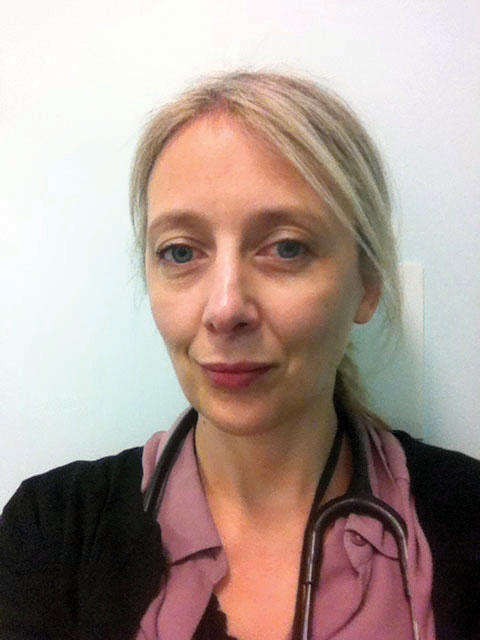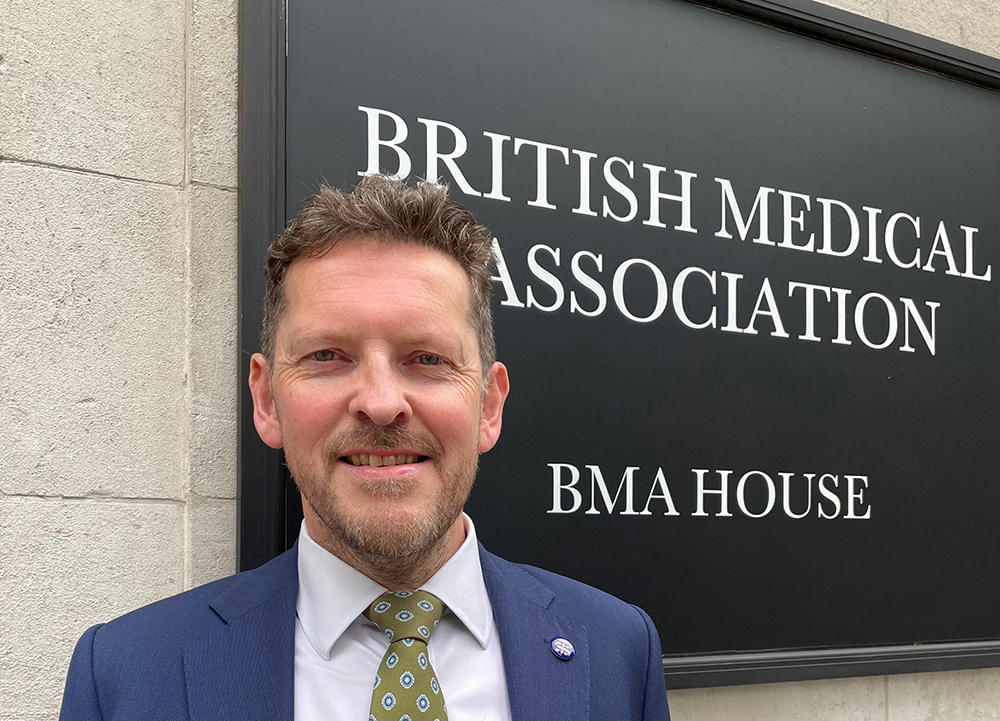As a consultant in infectious diseases, Claire Mackintosh knows she has the skills, knowledge and expertise to diagnose and treat patients.
But she equally knows she can’t always address the root causes of what is exacerbating their poor health. This is why she is so enthusiastic about an initiative to support patients who are homeless, or at risk of homelessness, which is showing remarkable levels of success.
‘When you discharge someone to the street it’s just impossible that anybody will improve, nobody will rehab or get better in that scenario. It’s just impossible to imagine,’ says Dr Mackintosh, clinical director of NHS Lothian’s regional infectious disease unit.
 MACKINTOSH: ‘Housing should be treated as a health issue’
MACKINTOSH: ‘Housing should be treated as a health issue’
‘There’s almost a moral trauma in not being able to help people with the most important thing that’s causing their ill health. Housing should be treated as a health issue. It’s not separate to or irrelevant to their presentation.’
Having long had an interest in inclusive health, Dr Mackintosh has helped drive an initiative alongside Cyrenians, a charity that tackles the causes and consequences of homelessness, which operates across much of Scotland.
The Cyrenians Hospital InReach service embeds a team of people with expertise in housing and homelessness to work alongside clinicians to identify patients who need support.
Within the first 18 months of a pilot project at Edinburgh’s Western General Hospital, the team supported more than 300 people experiencing or at risk of homelessness to maintain or access accommodation on discharge.
When you discharge someone to the street it’s just impossible that anybody will improveDr Mackintosh
They also help them with their needs, including food and attending appointments. An evaluation has shown that these patients were 68 per cent less likely to be readmitted to hospital compared with the 12 months prior to their referral to the project.
‘As clinicians, we don’t carry with us a lot of knowledge around the complexity of the local council-housing situation and all the other strategies around that – this team does,’ says Dr Mackintosh.
‘So, allowing the clinical staff who have got all the training in the biological aspects of the disease and the wellbeing around whatever brought them into hospital to do their jobs by having experts in other parts of health – such as housing – supporting the clinical teams has been hugely helpful.’
Complex needs
People experiencing homelessness often have complex health as well as social needs, says Dr Mackintosh, and being in hospital can be an immensely difficult time for them.
‘You almost need to be an Olympic athlete, mentally and physically, to withstand a hospital admission,’ she says.
‘And if you have suffered at the hands of authority, or live a lifestyle that’s lacking social and family support, then it’s even harder. What we’re trying to do is identify the additional needs of patients whose lives have otherwise been very difficult, and who are suffering the health complications of that, and to try to have a bespoke care plan that may encourage and optimise the chances they have of getting a better health outcome.’
This may include help with drug or alcohol misuse – and the consequences of that, such as lung, heart or infectious diseases – and supporting people (who might be on multiple medications) to manage their treatment and medical appointments. It also involves encouraging them to stay in hospital where appropriate, rather than self-discharging against medical advice.
Now we have a team we can callDr Kennedy
According to Cyrenians, homeless men and women (who have an average age of death of 47 and 43 respectively), experience hospitalisation 3.2 times more than non-homeless patients.
The admissions also last on average three times as long, driving up unscheduled secondary-care costs. ‘A vicious combination of inadequate shelter and pre-existing physical and mental health conditions, makes accessing appropriate healthcare and maintaining a healthy lifestyle exceptionally difficult for this vulnerable population group,’ says Cyrenians chief executive, Ewan Aitken.
‘These issues drive increased need for acute and emergency healthcare among people experiencing homelessness. Our hospital in-reach service has been integral to securing better long-term health outcomes for those who have interacted with our team.’
One service user named Gavin benefited from the initiative following an admission to the Western General with a bad flare-up of psoriasis last Hogmanay. His in-reach support worker helped with practicalities, such as getting him clothes, but was also able to build a trusting and continuing relationship.
‘He made sure I had everything else I needed whilst I was in the ward. I had no one else who could do this for me, I was totally on my own in hospital. Chris has been great and nothing is too much trouble for him. Out of all the support workers I’ve had he’s the only one I’ve been able to talk to and tell things that I wouldn’t tell anyone else. The attention and practical support I got was way more than I expected or have had from other support workers.’
Preventive care
On discharge, Gavin moved to Milestone House, a residential interim care unit that offers support to people following discharge from secondary care.
Despite further health problems, he is now doing well. BMA Scotland council chair Iain Kennedy says the scheme demonstrates how vital access to appropriate healthcare is to those experiencing homelessness.
‘It’s a positive example of how a prevention-led approach can improve health outcomes. We know that as doctors we can only do so much unless the wider determinants of health and health inequality are addressed and this is a positive initiative that allows doctors to do what we do
best, while improving support for patients.’
 KENNEDY: The wider determinants of health inequality need to be addressed
KENNEDY: The wider determinants of health inequality need to be addressed
The project has also helped improve the working lives of doctors. Robby Steel, a consultant liaison psychiatrist, says it has a big impact on him, as well as on individual patients.
‘In 20 years as a hospital consultant, the Cyrenians Hospital InReach service is the single most effective innovation I have seen,’ he says.
‘Sorting someone’s health problems without sorting their homelessness is futile – their health will inevitably deteriorate. Everybody working in the hospital knows this and it is profoundly demoralising.
Now we have a team who we can call.’ The in-reach workers deploy kindness, knowledge and tenacity to solve unsolved problems, he adds.
‘Where previously I would discharge someone with a heavy heart, now I discharge them with optimism and the warm feeling of a job well done.’

